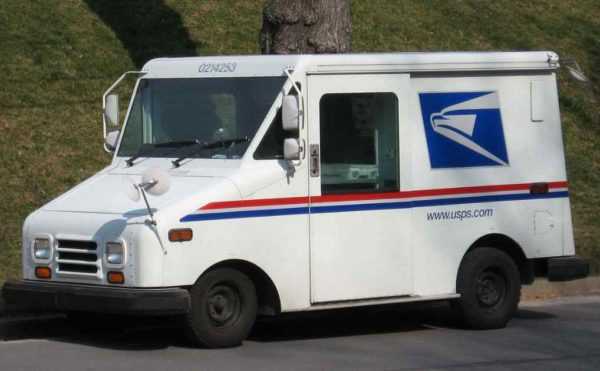The United States Postal Service, this week released a list of 3,653 post offices that could be closed, and some of their services handed off to local businesses, while other services would be relegated to on-line applications. Of those 3,653 post offices on the list, 36 of them were located in remote villages in Alaska.
The list was an initial one, it was computer generated and used certain criteria to select the post offices that could possibly be closed to save money for the USPS. It used information such as the level of foot traffic as well as decreasing volume and shortened business hours. Because this is the first step in looking at downsizing its force, the USPS admits that the list will probably change dramatically after the study advances. The current list of Alaskan Post Offices facing potential closure can be seen here.
Governor Sean Parnell spoke out over the possible closure of these rural Postal Stations. Parnell made a statement yesterday, saying,“Postal service is crucial to rural communities in Alaska. Many rely on the mail for the necessities of everyday life, from paying bills, to conducting business, to shopping, to staying in touch with friends and relatives. Our administration is studying the proposal and will work with affected towns and villages to mitigate or avoid negative consequences to the extent we are able. It is my hope that the federal government will find cost savings while also demonstrating their understanding of the importance of mail service, particularly in our state’s rural communities.”
Lisa Murkowski, understanding that the Postal Service will perform a comprehensive evaluation of each and every post office before deciding that post office’s fate, stated, “The United States Postal Service themselves admit that this is a rough first draft from a computer’s raw data,” Murkowski said. “But you simply can’t compare four Seattle post offices to 1 in Platinum – this is necessity, not convenience in terms of Alaska’s way of life.” After learning that her staff had gained information from USPSP that if there is no other post office in town, which is the case in all the rural communities, Lisa also stated, “I know that the United States Postal Service needs reform, and the Postmaster General needs to put everything on the table when it comes to finding efficiencies. As the USPS considers the proposed closures and relocations of Alaska’s post offices, I am confident they will recognize that many of these locations serve critical functions beyond just selling stamps and delivering letters. In many off-the-road-system communities, the Post Office is the only place where prescriptions are delivered, businesses can receive and send inventory, and banking is conducted. Not to mention the weather challenges faced by many regions of Alaska experience, where even driving a few miles further – where there are roads – can be not only difficult but life threatening.”
Mark Begich, Alaska’s newest Senator, responded to the announcement by contacting the Postmaster general and voicing his opinion that post offices in rural Alaska serve unique roles in their community, and are often the only source of medicine and food and that replacing them with computerized kiosks is simply unworkable. Begich went on to say to the Postmaster General, “In Alaska, we’re not talking about mail from grandma on a daily basis. Post offices in rural Alaska are the lifeblood of villages, handling everything from basic food products to medicines and building materials.”
Postmaster General Donahoe told Begich that he understood the unique role of remote Alaska post offices and would consider that in his review of possible closures.
Senator Begich also penned a letter to Donahoe asking for a detailed breakdown of objective criteria used to determine which post offices to close, USPS plans for community notification and public commentary on closures, and Plans for Congressional notification during this process.
“The Post Office needs to be very clear about their intent and process,” Begich said. “Any reduction in services for these 36 Alaska post offices could have grave consequences for the communities, businesses and families.”




